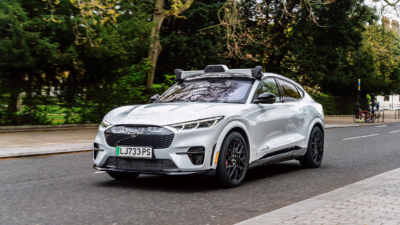GM Makes Cuts to Software Division
GM is cutting over 1,000 workers, equivalent to roughly 1.3% of its total workforce, from its software and services division.

Sign up for smart news, insights, and analysis on the biggest financial stories of the day.
GM is sick of trying to be a tech company.
Multiple outlets reported on Monday that GM is cutting over 1,000 workers, equivalent to roughly 1.3% of its total workforce, from its software and services division. This comes just a few weeks after the company announced it was abandoning an ambitious plan to build a robotaxi sans steering wheel.
Hard Times for Software
Monday’s cuts, which include around 600 jobs at GM’s tech hub in Detroit, did not come entirely out of the blue. Bloomberg reported last week that the company had begun layoffs in China, and the cuts included roles in the R&D division. GM, like many legacy automakers, has also softened its electric vehicle goals. Overall it paints a picture of a company that’s less keen on futuristic, techy advances and more focused on making cars.
On software specifically, GM seems to be making something of a U-turn. Previously, GM had been on a software hiring spree:
- In 2022, the company announced it planned to hire more than 8,000 tech roles, and boasted about poaching workers from Big Tech. “There was a time where … we were getting picked off by big tech,” Iwao Fusillo, GM’s then-chief data and analytics officer, told The Detroit News, “It’s now the other way around.”
- The company continued this trend into 2023 — aided by massive job cuts in Silicon Valley — with a big emphasis on software. “As the industry moves to electric and autonomous vehicles, it relies largely on software development to create the technology, apps and over-the-air updates. Many of our openings in recent years have been in this area of the business,” a GM spokesperson told the Detroit Free Press in January 2023.
Data Dealerships: GM’s software will be coming under a pretty harsh spotlight soon, as last week Texas Attorney General Ken Paxton sued GM, accusing it of illegally sending drivers’ data to insurance companies. In March, GM announced it would stop sending detailed driver data to two data brokers that were then selling that data on to insurers — but clearly Paxton wants to really drive home a point.











